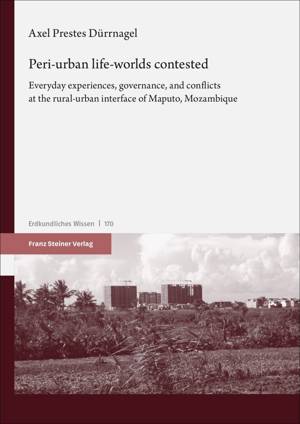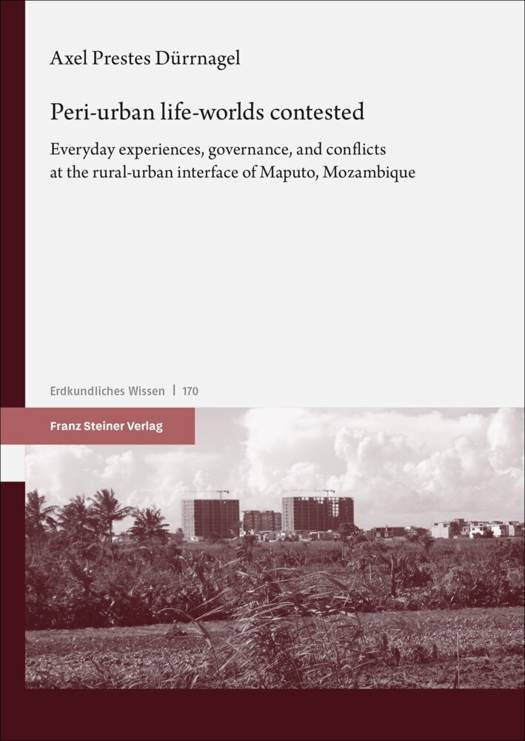
- Afhalen na 1 uur in een winkel met voorraad
- Gratis thuislevering in België vanaf € 30
- Ruim aanbod met 7 miljoen producten
- Afhalen na 1 uur in een winkel met voorraad
- Gratis thuislevering in België vanaf € 30
- Ruim aanbod met 7 miljoen producten
Zoeken
Peri-Urban Life-Worlds Contested
Everyday Experiences, Governance, and Conflicts at the Rural-Urban Interface of Maputo, Mozambique
Axel Prestes Durrnagel
€ 60,95
+ 121 punten
Omschrijving
The peri-urban areas of rapidly growing cities in sub-Saharan Africa are the centre of the life-worlds of the continent's future population. Located at the frontier of expanding cities, the rural-urban interface is also characterised by complex governance arrangements, where customary institutions and norms exist in parallel to statutory state law. The persistence of peri-urban spaces and the distinctiveness of peri-urban life-worlds have not received the scholarly attention they deserve, and the failure to understand the perspectives of people living in peri-urban areas ultimately leads to discontinuities and conflicts. Based on the example of the coastal plain of Maputo, the capital of Mozambique, the author explores the intrinsic qualities of everyday life in peri-urban areas and analyses peri-urban governance and conflicts arising in state-society interactions. By combining a phenomenological life-world with an actor-oriented approach, this book shows what it means to be a peri-urban dweller in Maputo and contributes to urban theory in the Global South. Finally, it presents a realistic life-world approach to planning based on the lived experiences of peri-urban life-worlds.
Specificaties
Betrokkenen
- Auteur(s):
- Uitgeverij:
Inhoud
- Aantal bladzijden:
- 327
- Taal:
- Engels
- Reeks:
- Reeksnummer:
- nr. 170
Eigenschappen
- Productcode (EAN):
- 9783515138901
- Verschijningsdatum:
- 8/03/2025
- Uitvoering:
- Paperback
- Formaat:
- Trade paperback (VS)
- Afmetingen:
- 172 mm x 22 mm
- Gewicht:
- 571 g

Alleen bij Standaard Boekhandel
+ 121 punten op je klantenkaart van Standaard Boekhandel
Beoordelingen
We publiceren alleen reviews die voldoen aan de voorwaarden voor reviews. Bekijk onze voorwaarden voor reviews.







